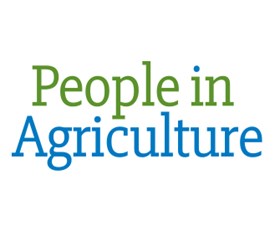Introduction to Agriculture
Industry overview
Agriculture plays a huge role in Australia and is a vital part of our economy. It also contributes to our social and environmental sustainability.
The meat and livestock industries produce and process meat products for domestic and export markets. Australia is one of the largest exporters of beef, mutton and lamb in the world, a trade that is very valuable to our economy.
While red meat is a top agricultural export earner, there is substantially growing interest in other meat product such as pork, game deer, goat and buffalo.
Wool production is likewise a very common activity on Australian farms. In 2014-15 around 77 million sheep were shorn, producing 428 million kilograms of greasy wool. The value of wool produced in Australia for 2014-15 was $2.6 billion.
The dairy industry is also one of our biggest agriculture producers and Australia is a major exporter, one of the top dairy producers in the world. In recent years, the export of live dairy cattle has been finding new markets, mainly in China. Australia’s dairy industry is highly regarded for its efficient production systems and product and systems innovation.
The grains industry also plays a vital role in Australia’s economy. Analysis by the Department of Agriculture shows that in 2010–11 grains and oilseeds comprised Australia’s largest category of food exports, representing 24 percent of total agricultural exports. The grains industry plays an important role in the health of Australia’s community, through its contribution to healthy foods, food security and environmental stewardship.
When you look at these figures, it’s easy to see why Australian farms are so important to our economy and why there has been such a growth in the Agriculture industry as a whole.
Source recognition: www.nff.org.au/farm-facts , www.agriculture.gov.au , www.horticulture.com.au and www.grdc.com.au/About-Us/Our-Grains-Industry (June 2016)
If you would like to read more about Agriculture in Australia, you can visit the Australian Government’s Department of Agriculture and Water Resources site
Careers overview
As of 2010-11, there are 307,000 people employed in Australian agriculture. The complete agricultural supply chain, including the associated food and fibre industries, provide over 1.6 million jobs to the Australian economy.
The growth in the farm sector has increased steadily over the 30 year period from 1974-75 to 2003-04 at an average rate of 2.8 percent, consistently out-performing other sectors. In recent years, the growth rate has slowed slightly due to a shortage in skilled labour.
As in many industries, owners and operators of farm business are ageing. Many will be looking at their options to scale down their involvement or step back from their businesses. This opens up a range of opportunities including leasing, selling, scaling back or expanding operations, share farming (in dairy) and business partnership to explore across Agriculture.
Farming can be challenging due to the variability of weather, commodity prices and global markets. Farmers embrace the challenge with both hands – they are agile, planning for natural and unforeseen conditions, investing in their business and people.
Many young people may not be aware of all the benefits and different career paths that exist in the agriculture industry. Agriculture is more than a job - it can offer a lifelong career with a real sense of reward, purpose, stimulating work, flexibility and work/life balance. It’s a lifestyle which also offers significant financial opportunities – many employees aim and succeed in buying their own farm or land, growing their business to employee people and being highly successful business owners.
In addition to this, the majority of farms in Australia embrace new technology and environmental sustainability in their day to day approaches to farming. See industry specific links and contact details for more information about pursuing a career in agriculture.





